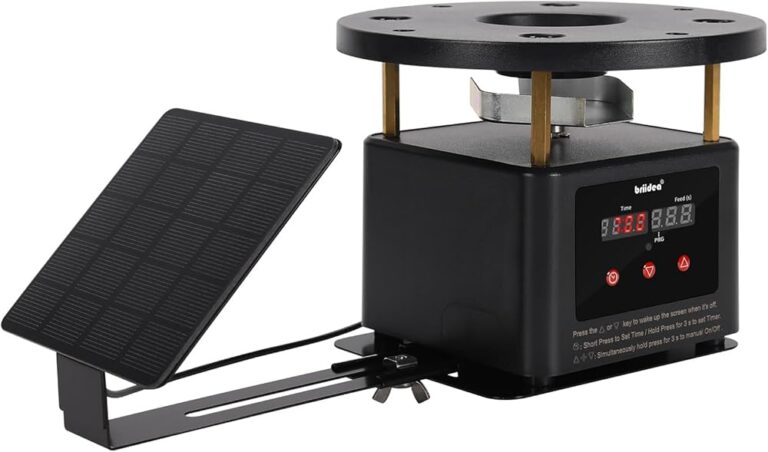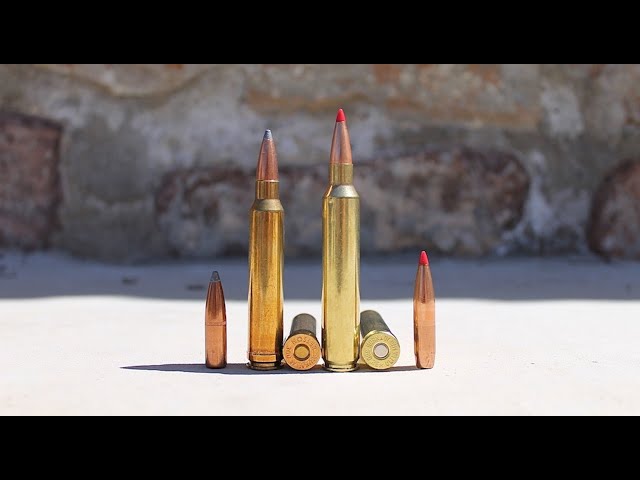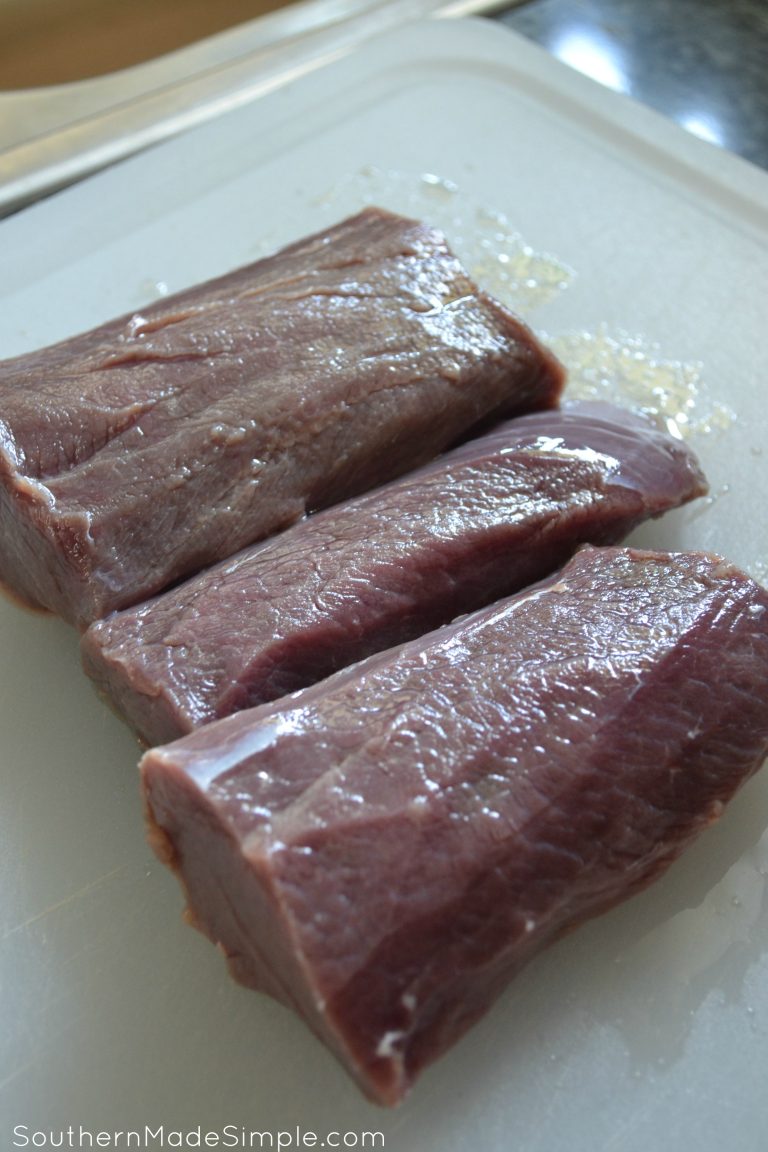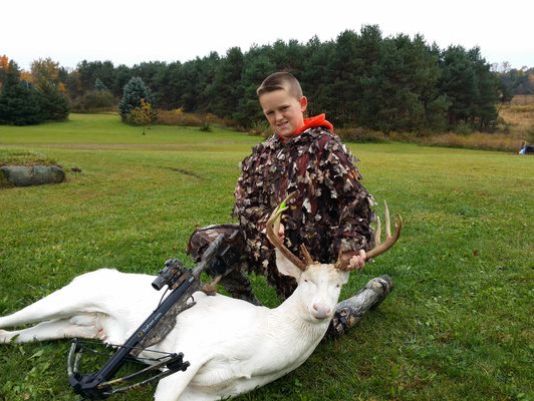How to Sight in a 243 Rifle: Expert Tips for Precision Accuracy
Sighting in a 243 rifle can seem tricky at first. It’s vital for accuracy and performance.
Properly sighting your rifle ensures you hit your target. Whether you are a beginner or experienced shooter, learning this skill is essential. A well-sighted rifle boosts confidence and ensures safety. In this guide, we will break down the steps to sight in your 243 rifle.
We will cover everything from setting up your equipment to making precise adjustments. By the end, you’ll be ready to hit the bullseye with consistency. Let’s get started on making your shooting experience more enjoyable and accurate.

Credit: www.cvlife.com
Choosing The Right Equipment
To achieve accurate shots with your .243 rifle, it’s essential to choose the right equipment. This includes selecting the rifle itself, as well as picking the appropriate optics. Proper equipment ensures precision and boosts your shooting confidence.
Selecting The Rifle
Choosing the right rifle is crucial. The .243 caliber is known for its versatility and accuracy. Many hunters and target shooters prefer it for its manageable recoil and effective range.
When selecting a rifle, consider the following factors:
- Weight: A lighter rifle is easier to carry, while a heavier one offers better stability.
- Barrel Length: Longer barrels generally provide better accuracy, but shorter barrels are easier to handle.
- Stock Material: Synthetic stocks are durable and weather-resistant, while wooden stocks offer a classic look.
Picking The Optics
Good optics are vital for precision shooting. A proper scope can make a significant difference in your accuracy.
When choosing optics, consider these aspects:
- Magnification: Higher magnification allows for better target identification, but lower magnification offers a wider field of view.
- Objective Lens Diameter: Larger lenses gather more light, which helps in low-light conditions.
- Reticle Type: Choose a reticle that suits your shooting style. Some popular options include duplex, mil-dot, and BDC reticles.
- Durability: Ensure the scope is shockproof, waterproof, and fog-proof for reliable performance.
Here’s a quick comparison of some popular scopes for .243 rifles:
| Scope Model | Magnification | Objective Lens Diameter | Special Features |
|---|---|---|---|
| Leupold VX-3i | 4.5-14x | 50mm | Twilight Max Light Management |
| Nikon ProStaff | 3-9x | 40mm | Multicoated Optics |
| Vortex Viper | 6.5-20x | 50mm | Precision-Force Spring System |
Choosing the right equipment sets the foundation for successful shooting. With the right rifle and optics, sighting in your .243 rifle becomes a smoother, more effective process.
Preparing For The Range
Before sighting in your .243 rifle, it’s crucial to prepare properly. Ensuring that you have the right safety gear and a well-organized space at the range will help you achieve the best results.
Safety Gear
Wearing the right safety gear is essential. This includes:
- Ear Protection: Use earmuffs or earplugs to protect your hearing.
- Eye Protection: Wear safety glasses to shield your eyes from debris.
- Appropriate Clothing: Wear snug clothing to avoid getting caught on the rifle.
Make sure your gear is in good condition. Safety is always the top priority.
Setting Up Your Space
Setting up your space at the range can impact your accuracy. Follow these steps:
- Select a Stable Bench: Choose a sturdy shooting bench for stability.
- Use a Gun Rest: Place your rifle on a gun rest or sandbags.
- Set Up Targets: Position your targets at the correct distance. Start at 25 yards.
Ensure your area is clear of obstructions. This will help maintain focus and safety.
Mounting The Scope
Mounting the scope is the first step in sighting in a. 243 rifle. Proper alignment ensures accuracy when aiming.
Mounting the scope on your 243 rifle is a crucial step. It ensures accuracy and precision during shooting. Proper mounting prevents the scope from shifting, which can affect your aim. This section will guide you on how to mount your scope correctly.Proper Alignment
Proper alignment is essential for accurate shooting. First, ensure the rifle is unloaded. Place the rifle on a stable rest. Attach the scope rings to the rifle. Place the scope in the rings. Adjust the scope to align with the rifle’s bore. The crosshairs should be level. Use a bubble level for precision. Tighten the top half of the rings slightly. This allows for further adjustment.Securing The Mounts
Securing the mounts firmly holds the scope in place. Start by tightening the screws on the scope rings. Use a torque wrench for consistent pressure. Tighten each screw evenly. Check the alignment again. Make sure the crosshairs are still level. Test the scope by adjusting the zoom. Ensure the scope remains steady. Recheck all screws for tightness. A secure mount ensures stability during shooting. “`
Credit: tacticon.com
Bore Sighting Basics
Bore sighting a rifle involves aligning its barrel with the scope. This process ensures that the rifle shoots accurately. It’s a crucial step before actual shooting practice. Understanding bore sighting basics can make your hunting or target shooting experience more successful.
Initial Adjustments
Start by placing the rifle on a stable surface. Use a gun vise or sandbags. Remove the bolt to get a clear view down the barrel. Look through the barrel and aim it at a distant object. Preferably, a target placed at 25 yards.
Adjust the rifle so the target is centered in the barrel. Without moving the rifle, look through the scope. Adjust the scope’s windage and elevation knobs. Align the crosshairs with the target seen through the barrel.
Using A Bore Sighter
A bore sighter simplifies the process. Attach the bore sighter to the rifle’s muzzle. Turn it on to project a laser beam. The laser shows where the barrel is aimed.
Look through the scope again. Adjust the scope’s knobs until the crosshairs align with the laser dot. This step makes your shots more accurate.
Once these steps are completed, your rifle is bore sighted. You’re now ready for finer adjustments at the range.
Zeroing The Rifle
Zeroing your 243 rifle is essential for accurate shooting. This process aligns your rifle’s sights with the target, ensuring precision. It involves adjusting the scope and firing test shots to achieve accuracy. Below, we cover the key steps.
Choosing The Distance
First, decide the distance for zeroing your rifle. For a 243 rifle, 100 yards is a common choice. This range balances between short and long-distance shooting. Use a reliable measuring tool to ensure accuracy.
| Distance | Purpose |
|---|---|
| 50 yards | Short-range, initial sighting |
| 100 yards | Standard zeroing range |
| 200 yards | Long-range shooting |
Firing The First Shots
Position yourself comfortably behind the rifle. Use a stable rest to minimize movement. Load your rifle with quality ammunition. Aim at the center of the target and fire your first shot.
- Check the shot placement on the target.
- Adjust the scope if the shot is off-center.
- Fire another shot to verify the adjustment.
Repeat this process until the shots consistently hit the center. This ensures your rifle is properly zeroed.
Making Adjustments
Making adjustments to your 243 rifle is crucial for accurate shooting. These adjustments fine-tune your aim, ensuring every shot is precise. This section will guide you through the necessary steps for windage corrections and elevation corrections.
Windage Corrections
Windage adjustments help you correct for horizontal deviations. First, fire a few test shots. Observe if your shots are landing left or right of the target. Use the windage knob on your scope to make corrections.
- Turn the knob clockwise to move the point of impact to the right.
- Turn the knob counterclockwise to move the point of impact to the left.
Make small adjustments and fire more test shots. Repeat until your shots are centered horizontally. Patience is key.
Elevation Corrections
Elevation adjustments control the vertical placement of your shots. Start by firing a few test shots. Check if your shots are hitting above or below the target. Use the elevation knob on your scope to make corrections.
- Turn the knob clockwise to lower the point of impact.
- Turn the knob counterclockwise to raise the point of impact.
Make small adjustments and fire more test shots. Continue adjusting until your shots are centered vertically. Consistency is important.
By following these steps, you will have a well-sighted 243 rifle. This will significantly improve your accuracy and shooting confidence.
Fine-tuning Accuracy
Fine-tuning the accuracy of your 243 rifle is essential for precision shooting. Small adjustments can make a big difference. This process involves careful steps to ensure your shots hit the mark. Let’s explore the key aspects of fine-tuning accuracy.
Group Shooting
Start with group shooting to see how your rifle performs. Shoot three to five rounds at the target. Aim at the same spot each time. This helps identify any inconsistencies in your shots. Analyze the group size and spread. A tight group means consistent shooting. A wide group indicates the need for adjustments.
Recording Results
Keep a record of your shooting results. Note the distance, weather, and ammunition used. Record the size and position of each shot group. This information helps track your progress. It also identifies any patterns or issues. Consistent records make it easier to fine-tune your rifle.

Credit: www.ebay.com
Maintaining Your Setup
Maintaining your setup is crucial for ensuring the accuracy and longevity of your 243 rifle. Regular upkeep not only enhances performance but also prevents potential issues. Let’s delve into the essentials of maintaining your setup.
Regular Checks
Regular checks are vital for consistent accuracy. Inspect your rifle and scope before each session. Look for signs of wear and tear.
- Check the scope’s alignment.
- Ensure all screws and mounts are tight.
- Look for any loose or damaged parts.
Performing these checks can save you from unexpected problems.
Caring For The Rifle And Scope
Caring for your rifle and scope ensures they remain in top condition. Clean the rifle barrel after each use. Use a bore brush and cleaning solvent.
- Remove the bolt and inspect the barrel.
- Run a bore brush through the barrel several times.
- Use a clean patch to remove any residue.
It’s also important to clean the scope lenses. Use a lens cleaning solution and a soft cloth.
- Apply the solution to the cloth, not the lens.
- Gently wipe the lenses to remove dust and fingerprints.
Proper care of your rifle and scope will enhance their durability and performance.
Frequently Asked Questions
How Do You Sight In A 243 Rifle?
To sight in a. 243 rifle, start at 25 yards. Fire three shots. Adjust the scope based on the grouping. Move to 100 yards. Repeat the process until the rifle is accurately sighted.
What Distance To Sight In A .243 Rifle?
Typically, sight in your. 243 rifle at 100 yards. This distance is standard for most hunting and shooting purposes. It provides a good balance between close and long-range accuracy.
What Is The Best Scope For A .243 Rifle?
The best scope for a. 243 rifle varies. Popular choices include the Vortex Crossfire II and Leupold VX-3i. Choose a scope that matches your shooting needs and budget.
How To Adjust A Rifle Scope?
To adjust a rifle scope, use the elevation and windage turrets. Turn them to move the reticle up/down and left/right. Fire test shots after each adjustment.
Conclusion
Sighting in a 243 rifle takes patience and precision. Follow the steps carefully. Start with a stable shooting position. Make small adjustments to your scope. Always check your progress after each shot. Practice consistently to improve your accuracy. Safety should be your top priority. Additionally, ensure that you are using quality ammunition that is compatible with your rifle to achieve the best results. Remember, understanding how to sight in a rifle requires not only technical skill but also mental focus, as distractions can lead to errors in alignment. With determination and the right technique, you’ll find that your ability to hit your target consistently will improve significantly over time.
With these tips, you’ll achieve better shooting results. Enjoy your time at the range and happy shooting!






